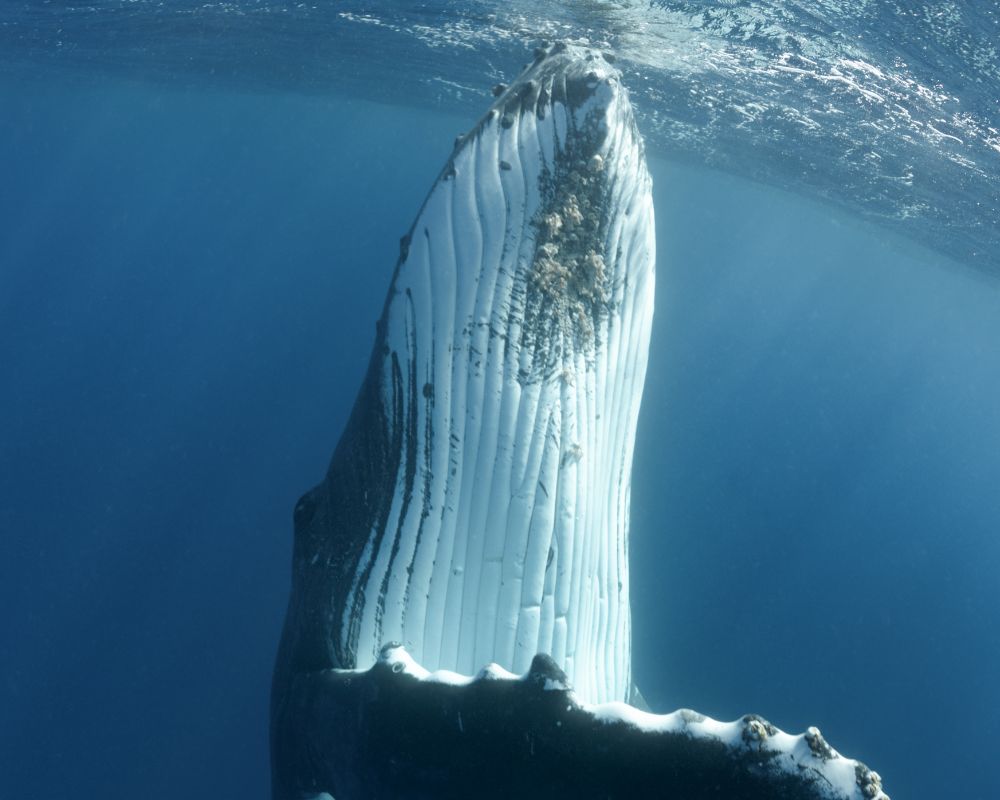Have you ever wondered if whale clicks can kill you? It’s a common question that many people ask when they learn about these massive creatures of the sea.
As someone who’s fascinated by marine life, I’m often asking myself this question. While it’s a popular myth, the truth is quite fascinating and may surprise you.
You may have heard that whale clicks are so loud that they can cause harm to humans who are nearby. However, the reality is that these clicks are not dangerous to humans at all. They’re an essential part of how whales communicate and navigate in their natural habitat.
In this blog post, we’ll dive into the science of whale vocalizations and explore how these creatures use clicks to interact with each other.
We’ll also examine why the myth of whale clicks being deadly to humans persists, and what you can do to safely observe these majestic creatures in the wild. So, let’s get started and discover the truth about whale clicks.
Can Whale Clicks Kill You?

No, whale clicks cannot kill humans. While whale clicks are incredibly loud and can be heard from miles away, they cannot harm humans. In fact, the sounds of whale clicks are an essential part of how these marine mammals navigate and communicate in their natural habitat.
While it’s true that some whale vocalizations can be very loud, their frequencies are often too low to cause any harm to humans. Additionally, whales are typically very aware of their surroundings and can easily avoid any potential collisions with boats or people.
However, it’s important to always respect these animals and maintain a safe distance when observing them in the wild.
Understanding Whale Vocalizations
Whale vocalizations are an incredibly fascinating topic, and there’s a lot to learn about how these majestic creatures communicate and navigate in their natural habitat. Let’s start with the basics:
What Are Whale Clicks And Why Do Whales Make Them?
Whale clicks are rapid bursts of sound that are produced by the air sacs in a whale’s nasal passage. These clicks are used for echolocation, which is the process of using sound waves to locate objects in the environment.
By emitting clicks and then listening for the echoes that bounce back, whales can create a detailed map of their surroundings and identify potential food sources or obstacles.
The Different Types Of Whale Vocalizations
In addition to clicks, whales produce a variety of other vocalizations, including whistles, moans, and songs.
Whistles are used for communication between individuals, while moans are often associated with emotional states such as distress or excitement.
Songs, on the other hand, are complex sequences of vocalizations that are produced by male humpback whales during mating season. These songs can last for hours and are thought to be a way for males to attract females.
How Do Whales Use Clicks To Navigate And Communicate In Their Natural Habitat?
Whales use clicks not only for echolocation but also for communication with other members of their pod. Each pod has its unique vocal repertoire, which allows whales to identify and communicate with one another. Whales can also use clicks to stun or disorient prey, making it easier to catch.
The Science Behind The Loudness Of Whale Clicks
Whale clicks are incredibly loud, and can be heard for miles underwater. Some whale clicks can reach up to 230 decibels, which is louder than a jet engine.
The reason for this incredible volume is due to the unique structure of the air sacs in a whale’s nasal passage.
These sacs are designed to amplify sound waves, allowing the clicks to travel farther and be heard more clearly.
Now, let’s talk more about the myth of whale clicks killing humans:
The Truth about the Myth
As previously mentioned, There’s a common myth out there that whale clicks can kill humans, but the truth is a bit more nuanced than that. Let’s dive into the details:
Debunking The Myth That Whale Clicks Can Kill Humans
First and foremost, it’s important to understand that whale clicks are not powerful enough to directly harm humans. While they can be incredibly loud, as we discussed earlier, they are not at a frequency that can cause physical harm to our bodies.
So, if you’ve ever been worried about swimming in the ocean with whales nearby, you can rest easy knowing that their clicks won’t hurt you.
Exploring The Origins Of The Myth And How It Has Persisted Over Time
Despite the scientific evidence that whale clicks are not dangerous to humans, the myth that they can be deadly has persisted over time.
One possible explanation for this is the fear that many people have of the unknown depths of the ocean and the creatures that inhabit it.
Another possible factor is the misconception that loud noises in general can be harmful to our health, which may have led people to assume that whale clicks must be dangerous.
Understanding The Difference Between The Frequency And Loudness Of Whale Clicks
It’s worth noting that while whale clicks may not be harmful to humans, they can still be incredibly loud and overwhelming.
The volume of a whale click is measured in decibels, while the frequency is measured in hertz. The frequency of whale clicks is much higher than what the human ear can hear, which is why they may sound like a series of high-pitched chirps or beeps.
While the frequency of whale clicks can be annoying or overwhelming to humans, it’s not harmful to our bodies.
The Effects Of Whale Clicks On Marine Life And How They Are Adapted To It
While whale clicks may not harm humans, they can have an impact on marine life in their natural habitat.
For example, some studies have shown that high-intensity sonar, which emits loud noises that can be harmful to marine life, can disrupt whale behavior and even cause mass strandings.
However, whales and other marine animals have evolved to live in an environment where sound is a crucial part of their communication and navigation, so they are generally well-adapted to the effects of whale clicks.
FAQs
Can Sperm Whale Click Harm You?
Sperm whale clicks are extremely loud, but they are not harmful to humans. They are inaudible to humans at a distance, and even up close, they do not pose a direct threat to our health. However, prolonged exposure to loud noises can cause hearing damage, so it’s important to take precautions when around any loud noises, including those produced by sperm whales.
How Can Sperm Whale Click Paralyze You?
There is no evidence to suggest that sperm whale clicks can paralyze humans. While the clicks are extremely loud, they are not strong enough to physically harm humans.
However, there are rare cases of divers experiencing a condition known as “the bends” while diving with sperm whales, which can lead to paralysis if not treated quickly and appropriately.
Can Humans Hear Whale Clicks?
Whale clicks are generally too high-pitched for humans to hear. Sperm whales, for example, produce clicks with frequencies that are well above the range of human hearing.
However, researchers can use special equipment to record and study these sounds, and they can be played back at a lower frequency range than humans can hear.
Can Sperm Whale Click Kill An Orca?
There is no evidence to suggest that sperm whale clicks can kill orcas. While sperm whales and orcas are both apex predators in their respective environments and are known to sometimes engage in aggressive behavior towards each other, the clicks produced by sperm whales are not strong enough to physically harm or kill an orca.
Can Whale Clicks Burst Your Eardrums?
Whale clicks, including those produced by sperm whales, are extremely loud but are unlikely to burst your eardrums. This is because they are not sustained sounds like those produced by explosions or gunfire.
However, prolonged exposure to loud noises, including whale clicks, can cause hearing damage, so it’s important to take precautions and protect your hearing when around loud noises.
Is It Safe To Swim With A Sperm Whale?
It is not safe to swim with a sperm whale or any other type of whale. While they are generally not aggressive towards humans, they are wild animals and can become startled or agitated by human presence.
Additionally, their sheer size and strength make them potentially dangerous to humans, even unintentionally. It’s important to observe whales from a safe distance and respect their behavior and habitat.

